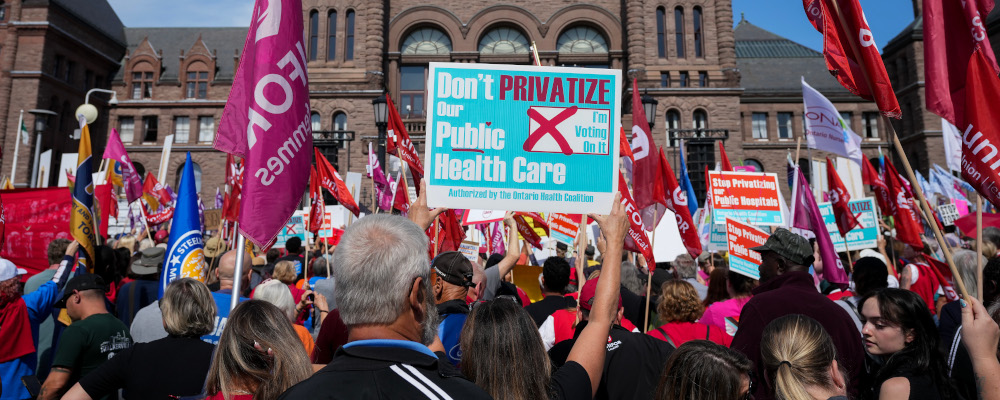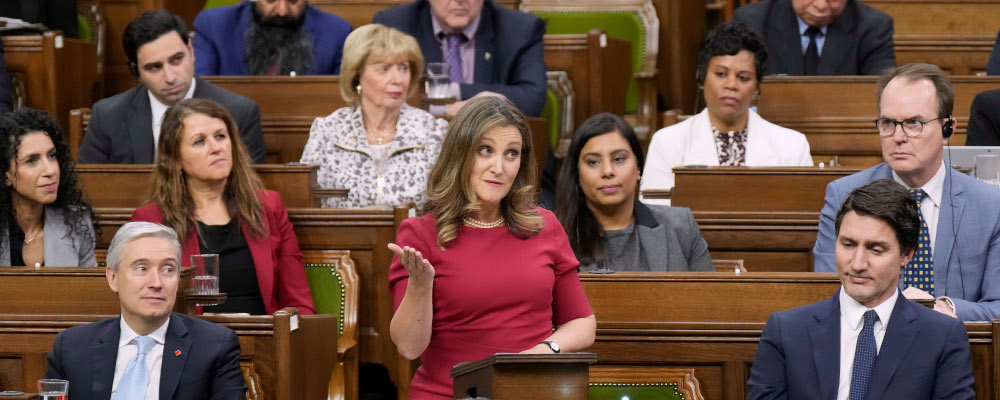What do you do when big problems can’t be solved by writing big cheques? This is the problem facing Prime Minister Justin Trudeau, and it’s increasingly clear he can’t figure it out. It’s true that the country’s fiscal picture is getting bleaker, that the cost of public borrowing is getting higher, and that inflation and high interest rates call for greater fiscal restraint. It’s also true that the Liberals seem incapable of confronting these facts, kicking the can of tough spending decisions down the road and avoiding the problem as it gets worse.
But the bigger challenge—for both today’s government and whoever forms government soon—is that neither fiscal restraint nor increased spending can fully address some of the biggest problems plaguing the country. The supply challenge—our shortage of everything from energy to housing to child care to family doctors—won’t be fixed by writing cheques (in fact jacking up demand only makes things worse), but it won’t be fixed by mere fiscal restraint either. And young Canadians know it.
Last week I walked into a crowded Tim Hortons to grab a quick coffee before my first meeting of the day. I glumly shuffled to the end of the twenty-person queue only to have it dawn on me that I had recently downloaded the Tim Hortons app. I realized I could order my coffee on my phone, jump forward to the mobile order line, and be out of the door before the less savvy patrons in front of me had even moved forward in line. What was a late realization for me is a state of mind for younger Canadians. Members of Generation Z, born from the mid-1990s through to the early 2010s, can barely remember a time when you had to visit a restaurant to get takeout, go to a mall to buy clothes, or wait until a week after the cliff-hanger to see the season finale.
Now that generation is growing up. Coming into their mid-to-late-twenties, Zoomers are thinking about buying houses and having kids, they’re consuming more energy, buying more groceries, and they’re managing their own lives, including trying to get health care. As they take on each of these adult responsibilities, almost none of them optional, they’re running smack into government-regulated marketplaces where supply is always artificially low and customer convenience doesn’t even factor in.
For years, Canadians have abided by long wait times, bad service, and high prices. But a combination of accumulated personal wealth and government-issued cheques cushioned the blow. Now, a new generation of kids without the wealth that comes from coming of age in a time of abundance has grown up.
First, it was housing. For years, economists and analysts quietly argued that as bad zoning and regulation were restricting housing supply, prices were climbing at an alarming rate, and young people were getting priced out of the market. Politicians put their hands over their ears. After all, NIMBY Canadians who got into the market when prices were low were doing fine (heck, they were doing great—their wealth had sky-rocketed!) and renters don’t vote anyway.
Then things got worse. As immigration shot up, supply stagnated, entire cohorts of Canadians gave up on the dream of ever being able to own a home, and someone started to listen to them. As Conservative leader Pierre Poilievre started talking to young Canadians about housing, they started to flex their political power. Now that their preference for housing solutions is showing up in the polls, the Liberals are scrambling to catch up. It wasn’t so long ago that political advisors told aspiring politicians they could offer up cash to voters aspiring to home ownership, but real supply-side solutions were untouchable. Then Millennials and Zoomers flipped the script on the NIMBYs practically overnight.
If politicians will stand up to NIMBYs, what could be next? A recent Crestview Strategy survey might provide a hint. Public health care is Canada’s ultimate political sacred cow. For Canadians of a certain age, the idea that all you have to do when you walk into a doctor’s office or hospital is show your health care card is sacrosanct. Grinning and bearing it while waiting hours to see the doctor could feel almost patriotic, a kind of honourable duty in defence of the-best-health-care-system-in-the-world™. Some years, we would get bad flu season and people would get worried. But it was never something a bigger cash transfer from the federal government couldn’t claim to solve. And anyway, haven’t you heard of Tommy Douglas?

Just as on housing though, young people don’t share their parents’ stiff upper lips when it comes health care. Crestview’s October survey of 2,000 Canadians found that as much as 70 percent of Gen Z decided voters are open to “pay for service” health care, a shockingly high number for anyone who grew up learning the gospel of the Canada Health Act.
Just as young Canadians understand no amount of government spending will make housing abundant and affordable, they understand that without some free market dynamics, public health-care delivery can’t adequately respond to consumer demand. But unlike with housing, politicians aren’t really responding, at least not yet. Some provinces experiment with private service delivery on the margins, but their public policy tweaks have the cloak-and-dagger feel of a measure you quietly take after getting elected, instead of a campaign promise you make to get elected. And it’s no wonder when the mainstream media portrays any foray into new service delivery models as sacrilege.
But for those of us impatient for better outcomes, the openness of young people to alternatives (and their frustration with the status quo) is encouraging. Hopefully—unlike with housing where a new generation is going without owning homes—it doesn’t take family doctors becoming completely inaccessible to young Canadians for politicians to wake up and for the political switch to finally flip.
Recommended for You

Ginny Roth: J.D. Vance, Pierre Poilievre, and how they slice their economic pie

David Polansky: As President Biden leaves the race, will the Democratic Party hodgepodge hold?

RCMP spending to protect MPs may have risen 112% since 2018, as Canadian politicians face greater rise in threats

Trevor Tombe: Canadians are paying billions in hidden taxes on new homes










